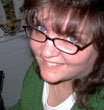I hope everyone had a good Thanksgiving. Let's talk about SETTING.
When writing fantasy, you need to decide how different your world is from the contemporary world. Some fantasies are Earth-based, with all the rules of Earth, like gravity. Some fantasy worlds are slightly different. Some are radically different. When choosing your fantasy world, you’ll want to be careful you don’t slip into sci-fi.
Earth-based: the rules of gravity apply, one sun, one moon, weather patterns are similar, north is cold, south is hot, geography/plant life similar.
Earth-like: the rules of gravity apply, one or more suns/moons, weather similar, geography similar, plant life can be similar but maybe with different qualities. If you are using this setting, make sure you have a few things that keep it from being too close to Earth-based.
UnEarth-like: anything goes, although you don’t want space ships or other technology that would make it feel like science fiction.
Remember, your setting is a character in your story. Don't be afraid to put as much research and development into the setting as you do your characters. The setting can enhance the story, add to the tension, and help the protagonist. As you write, ask yourself if you chose the right setting for your hero as well as the story.
Your thoughts? Need help with your setting? Let's talk!
Don't Plant Trees!
12 years ago






